I am updating my supplement protocol to optimize health and performance outcomes. After my initial blog post about my routine, I received significant feedback—mostly positive, with some very helpful suggestions. It’s important to remember that supplement protocols are continually evolving as research advances and new information becomes available. While I am a physician, my primary specialty is facial plastic surgery, not nutrition. However, nutrition and supplementation are areas of personal interest for my own health and particularly important for my patients during their recovery periods.
So, what’s changing in my updated routine? One major point of discussion was the efficacy of tablets versus capsules and powders. Initially, my supplement regimen included numerous tablets, but I’ve now transitioned to almost exclusively capsules and powders, retaining only one tablet. The rationale here is improved absorption rates, and although definitive scientific proof is still evolving, existing evidence strongly supports favoring capsules and powders.
I am also streamlining the number of brands and bottles I use, which has simplified my daily intake. Currently, I take about seven capsules in the morning, another seven in the evening, and one more at night.
Recently, I tested my testosterone levels and found my reading placed me in the top 25% of my age group, which I was pleased with—until I discovered my brother’s level was 1,250 ng/dL, nearly double mine. Before my last blog post, I introduced Tonkat Ali to my routine, and now I’ve also incorporated Boron, which is beneficial in boosting both total and free testosterone. Additionally, I’ve added TMG (Betaine) to support liver function, and switched from zinc tablets to zinc capsules for better absorption. Although I haven’t retested my testosterone levels since these additions, I’ve noticed increased performance at the gym, managing an extra rep or two during workouts.
My approach to senolytics has also evolved. Senolytics are an exciting and emerging area of research, holding promising potential for extending lifespan and improving long-term health. Previously, I was taking senolytics daily, but I’ve since learned that the optimal strategy involves brief, intense senolytic supplementation once or twice a month to effectively clear out senescent (“zombie”) cells. During these short periods, high doses of fisetin and quercetin are beneficial, while antioxidants and NAD supplements should be paused. Immediately following this intensive senolytic phase, introducing Urolithin is recommended to help clear out damaged mitochondria. While maintaining a daily low dose of senolytics helps prevent the buildup of zombie cells without stressing the body, this periodic high-dose strategy is crucial for optimal efficacy.
Here is my daily supplement plan:
Morning:
- Nicotinamide Riboside (NR) 300 mg
- TMG (Betaine) 500 mg
- Thorne Elite AM
- Theracurmin
- Vitamin D3 + K2
- Boron
- Tonkat Ali
- NAD+
- Creatine 5g
- Beetroot
- Omega-3/Fish Oil
- Mushroom Complex
- Age Defend: Fisetin, Resveratrol, Quercetin, Spermidine, and Berberine- low dose
- Collagen Peptides
- Whey Protein – Glutamine
Midday:
- Ketones
- Creatine 10g
- Protein bars
With Dinner:
- Omega-3/Fish Oil
- Creatine 7g
- Tongkat Ali
- Age-Defend NAD+
- TMG (Betaine)
- Boron (PM optional)
- Thorne Elite PM
- Magnesium
- Finasteride
- Whey Protein Glutamine
Evening (30-60 mins before bed)
- Arginine + Citrulline
Senolytic Plan (1-2 days per month)
- Bio-Fisetin 800-1,000mg (split AM/PM)
- Apigenin 50-100mg (PM) – senolytic
- Magnesium (PM)
- Urolithin A 500mg in morning for 3-5 days post pulse
During this time pause the following supplements:
- Thorne AM/PM – These contain antioxidants that may block senescent cell apoptosis
- NAD+ and NR – Reduces stress on senescent cells which is the opposite of the goal
- Age-Defend – May blunt ROS needed for senolytic action
- Mushroom Blend – Reishi and Chaga are antioxidant rich and may interfere
- TMG (Betaine) – Supports methylation/resilience which counteracts senolytic stress
- Tonkat Ali – Optional to pause, may reduce catabolism
- Creatine – not harmful but not essential during senolytic days
- Whey Protein – optional to pause, fasting or lower protein may enhance clearance signals
- Smoothie with powders (beetroot, goji, powdered greens)
- Arginine + Citrulline
- Pterostilbene
Testosterone Plan (Every other month)
1. Clean Nutra Alpha Drive
- Cistanche Tribulosa
- Tongkat Ali (pause other Tongkat Ali supplement while taking)
- Fadogia Agretis
- Ashwagandha
- Turkesterone
- Black pepper
2. Pterostilbene – 100/200mg – take every other month
- Not directly for testosterone, but pulsing every other month
Hormonal Support-Male
I use supplements to support testosterone production as this is beneficial to men of almost every age. If you can avoid taking supplemental testosterone, fantastic. If you need it and your body will benefit, fantastic. I currently do not supplement with exogenous testosterone, or testosterone injections, but may do so in the future based on my lab values. The evidence for these is overall mixed. In reality with most of these, you’re probably getting increased levels of free testosterone and not actually increasing your total testosterone.
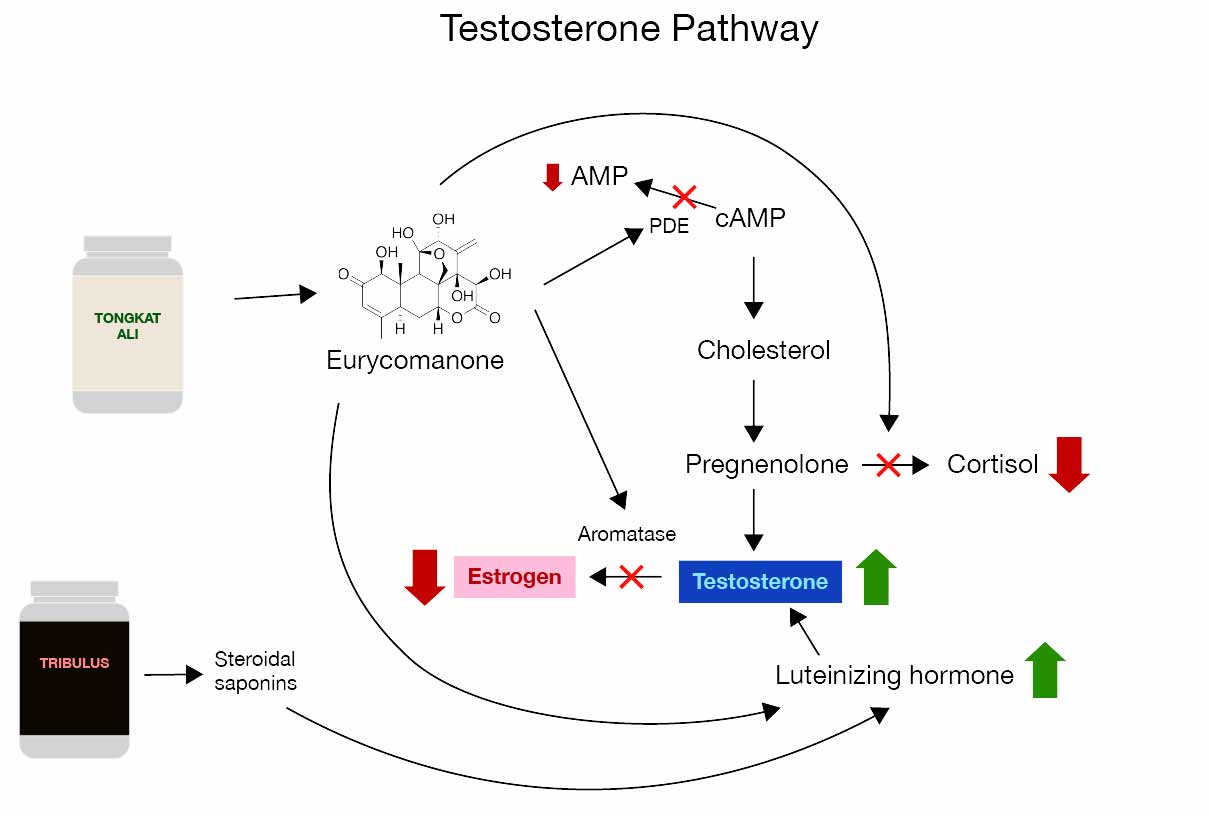

Tongkat Ali

Tongkat Ali is primarily known as a natural testosterone booster and is often used in supplements aimed at improving male health.
Benefits:
- Boosts testosterone levels
- Reduces stress and enhances mood
- Improves physical performance
- Supports energy and endurance
- May improve cognitive function
Tongkat Ali is a great male health supplement as it aids in many different ways. Many athletes and bodybuilders use this as a natural performance enhancer as it can aid in muscle strength and lean muscle mass. Users also report improved mood, reduced anxiety, increased energy and even better mental clarity. Clinical studies also support that both long-term low-dose and short-term high-dose Tonkat Ali use raises testosterone levels with very little risk of side effects.
PubMed, PMC, PMC.
Testosterone injections are an alternative to raising your testosterone, but it also suppresses your testosterone endogenously so supplements are preferable if possible.
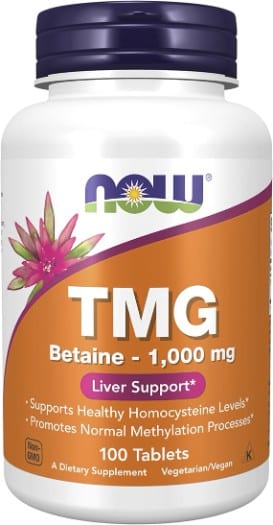
TMG (Betaine)
This is a supplement I have added into my routine since last time.
Benefits:
- Supports methylation, improving testosterone levels
- Supports liver detoxification
- Improved body composition and strength
- May improve cardiovascular health

TMG, short for Trimethylglycine, is a compound naturally found in beets, spinach, and whole grains. It acts as a methyl donor, meaning it helps your body complete methylation processes—critical for DNA repair, detoxification, and hormone production. It’s also used to support liver health, cardiovascular function, and athletic performance. In recent years, TMG has gained attention for its potential to support testosterone production.
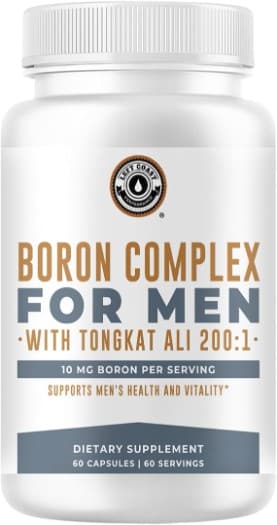
Boron
This is a supplement I have added into my routine since last time.
Benefits:
- Increases free testosterone
- May lower estrogen levels
- Reduces inflammatory markers

Boron is a trace mineral naturally found in soil, food (like nuts, leafy greens, and prunes), and even drinking water. While it’s not classified as an essential nutrient, research suggests it plays a supporting role in bone health, brain function, and hormone regulation. In the supplement world, boron is best known for its potential to boost free testosterone, balance estrogen levels, and reduce inflammation—making it a popular addition to men’s health and performance stacks.
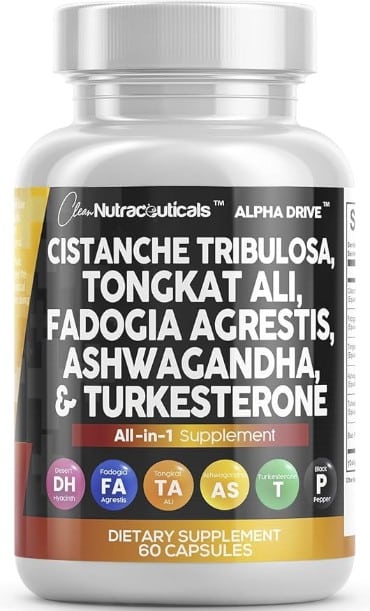
Clean Nutra Alpha Drive
- Cistanche Tribulosa
○ Supports testosterone production by promotions luteinizing hormone (LH) and increasing nitric oxide for improved blood flow and performance - Tongkat Ali
○ Boosts testosterone levels and performance - Fadogia Agretis
○ Possibly boosts LH levels - Ashwagandha
○ Reduces cortisol and increases testosterone - Turkesterone
○ Promotes muscle growth and reduces fatigue - Black pepper
○ Enhances bioavailability of other ingredients by improving absorption

Anti-aging-antioxidant
The body undergoes constant stresses from the environment. Antioxidants can help your body with this process and aging. Many of these supplements can also help in other categories, but I put them here.

Senolytics
This is a new category of supplement. Essentially, the purpose of the supplement is to eat away at your zombie cells. As you get older, your body starts making cells that don’t function as well. These cells essentially can spoil the rest of the cells. One of the theories of aging is that the “rotten” or zombie cells are like apples where one rotten apple can spoil a bunch. The data for senolytics is mixed, but shows promising results.

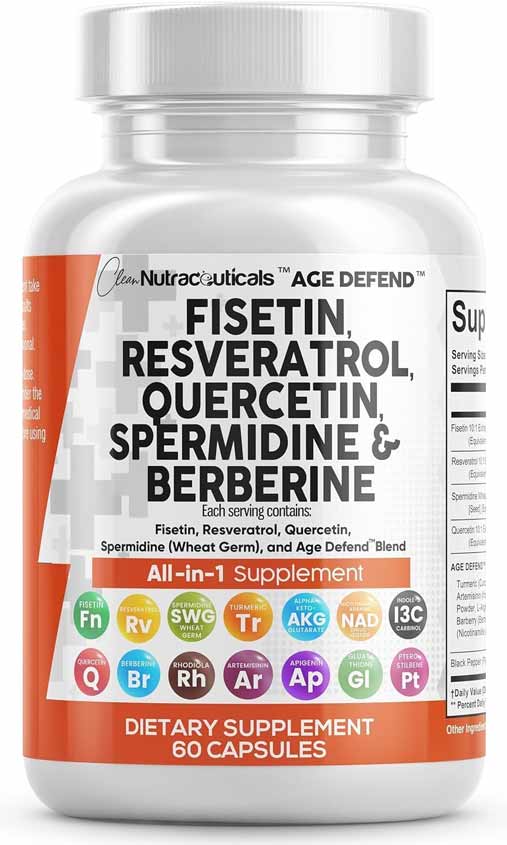
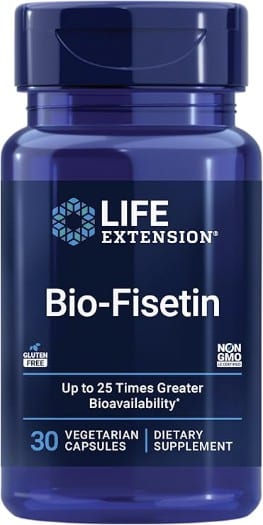
Fisetin
Bio-Fisetin

Fisetin is a natural plant flavonoid found in many fruits and vegetables. It has antioxidant and anti-inflammatory properties, and more recently has gained attention for its senolytic activity – the ability to selectively eliminate senescent cells (often called “zombie cells”) that accumulate with age. By clearing these dysfunctional cells, fisetin is being studied as a promising anti-aging and longevity compound.
Benefits:
- Potent senolytic action
- Increases healthspan and lifespan
- Reduces age-related degeneration
- Neuroprotective potential
Fisetin shows strong potential as a geroprotective/senolytic agent, backed by robust preclinical evidence. High-quality animal studies have demonstrated clear benefits – e.g. significant lifespan and healthspan extension in mice [pmc.ncbi.nlm.nih.gov] – which is compelling support for its efficacy. It also has mechanistic plausibility by targeting fundamental aging processes (senescent cells).

Quercetin (senolytics)

Quercetin is a naturally occurring plant flavonoid. It is best known for its potent antioxidant and anti-inflammatory properties, and it also exhibits antiviral and immune-modulating effects.
Benefits:
- Anti-aging effects
- Cardiovascular health
- Anti-inflammatory and antioxidant effects
- Immune support and antiviral activity
Quercetin is a senolytic and very similar to Fisetin. On the whole, quercetin offers a broad range of health benefits backed by a growing body of research, but the strength of evidence varies by benefit. There are multiple human studies (including some randomized trials and meta-analyses) demonstrating quercetin’s positive effects – for example, significant though modest reductions in inflammation markers and blood pressure have been documented. [pubmed.ncbi.nlm.nih.gov], [pubmed.ncbi.nlm.nih.gov]. Its immune and antiviral benefits are supported by clinical trials as well, and mechanistic studies strongly support its antioxidant and anti-inflammatory actions. The senolytic/anti-aging benefits, in particular, are very promising.

Spermidine (senolytics)

Spermidine is a naturally occurring polyamine found in foods like wheat germ, soybeans, mushrooms, and aged cheese. It plays a crucial role in cell growth, DNA stability, and autophagy—the body’s process of cleaning out damaged cells. Its ability to stimulate autophagy has made it a hot topic in longevity research.
Benefits:
- Supports brain health and cognitive function
- Promotes longevity via autophagy (cell renewal)
- Cardiovascular protection
- Anti-inflammatory and metabolic effects
Spermidine is one of the most promising natural longevity compounds, especially because of its role in activating autophagy. It has strong preclinical evidence and growing support in human trials for brain and heart health. While the evidence is not yet as deep as older compounds like resveratrol or quercetin, the early human data is compelling.

Berberine (senolytics and sugar regulator)

Berberine is a natural plant alkaloid found in several herbs and has a long history of use in traditional Chinese medicine. In modern research, berberine is being studied for its beneficial effects on metabolic conditions like type 2 diabetes and heart disease risk factors.
Benefits:
- Blood sugar regulation
- Aids in weight management
Overall, berberine’s metabolic benefits are well-supported by clinical research. Numerous human trials and meta-analyses have shown significant improvements in blood sugar control, insulin function, lipid profiles, and modest weight loss with berberine. [journals.lww.com], [pubmed.ncbi.nlm.nih.gov]. Berberine is kind of like an Ozempic-like element. The idea with Berberine is it seems to regulate your blood sugars and helps without having some of the other side effects that you can get from taking diabetic medications.
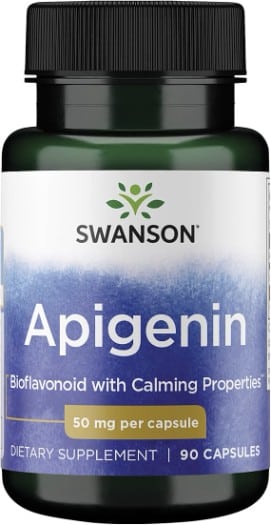
Apigenin
This is a new supplement that I have added to my senolytic plan.
Benefits:
- Supports cellular energy and longevity
- Anti-inflammatory and entioxidant
- Lowers cortisol levels
- Supports sleep quality

Apigenin is a naturally occurring flavonoid known for its calming, anti-inflammatory, antioxidant, and cellular-protective effects. More recently, it has gained attention in the longevity and sleep optimization communities, particularly for its potential to lower cortisol, support sleep quality, and enhance cellular health by targeting enzymes like CD38, which is involved in NAD+ depletion.
Antioxidants
Antioxidants protect you from oxidative stress. Distress can lead you to DNA miscoding, poor cell regulation, and perhaps even accelerate aging.
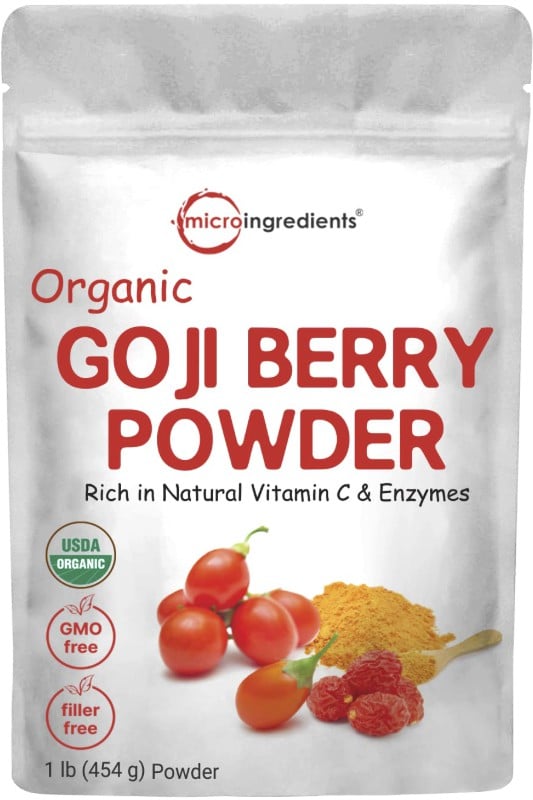
Goji Berry Powder
I was previously taking capsules but have changed to a powder that I add to my smoothie

Benefits:
- Boosts immune function
- Improves energy and mental acuity
- Improves sleep
- Lowers LDL cholesterol levels
Ever wonder how I seem to possess an endless supply of energy? The answer may be the goji complex supplement I take. The benefits of goji berries are very noteworthy, including improved mental acuity, a boosted immune system, and sleep improvement.

Powdered Greens

Benefits:
- Improves gut health
- Reduces inflammation
- Improves skin health
Another key element of my supplement regime is powdered greens. We tend to believe that any food or drink that is green must be healthy, right? Well, in the case of powdered greens, this idea rings true. Powdered greens not only improve gut health, but also improve your skin’s Health.
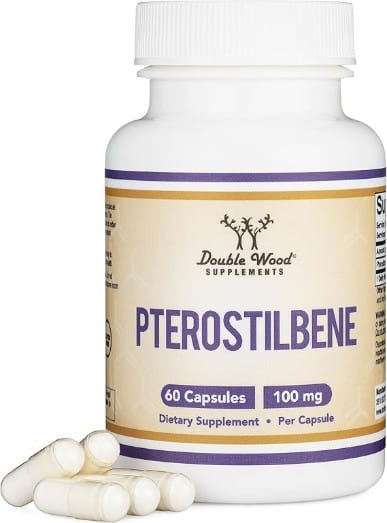
Pterostilbene
This is a supplement I have added to my senolytic plan.
Benefits:
- Potent antioxidant
- May support cognitive function and memory
- Anti-inflammatory properties
- May support blood sugar regulation

Pterostilbene is a natural antioxidant found in blueberries, grapes, and certain tree barks. It’s chemically similar to resveratrol (the compound in red wine), but with better bioavailability—meaning your body absorbs and retains it more effectively. Pterostilbene is being studied for its potential anti-aging, cognitive, and metabolic benefits, and is often included in longevity and nootropic supplement stacks.
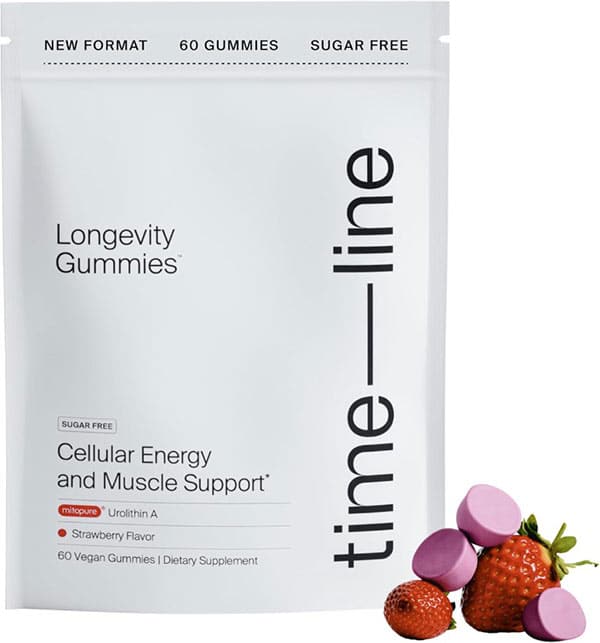
Urolithin A
This is a supplement I have added to my senolytic plan.
Benefits:
- Helps new cells form strong mitochondria
- Clears residual dysfunctional mitochondria
- Reduces post-senolytic inflammation
- Enhances tissue regeneration

After a senolytic pulse, your body enters a cellular regeneration and recovery phase. This is when your system starts replacing those cleared cells with new, healthy ones — and Urolithin A can play a critical supporting role in this phase.
The Nutrient Category
There’s a whole host of nutrients that are difficult to obtain through your general diet alone. Creatine, for example, is available in red meat. Eating red meat can be controversial for some and unethical for others. The benefit of creatine, however, can be quite significant as a supplement, as the amount that can be obtained is much higher than that of carnivores.
Fish oil is another one where cognition, joints, mood, G.I., and almost every system in the body seem to be improved through supplementation. These healthy fats help lubricate the body and are found in many cells in the body. Obtaining enough fish in our diet can be difficult. Another obstacle is the potential side effect of toxicity, particularly due to mercury and other heavy metals found in fish. Some of the fish oils on the market can give you the upside of DHA and EPA without the downside of toxicity. Be aware that these are not 100% safe, as a new study stated that there might be some risk of arrhythmias in the heart when taking these supplements. As with any supplement, it’s weighing the risk versus the reward.
Sufficient protein is another element that could be difficult to obtain through diet alone. Supplementation with a variety of protein sources can be helpful to achieve your macro counts. There seems to be some short-term improvements from taking protein, however, long-term and longevity studies really are inconclusive. I use protein mostly because I need my muscles to at least be maintained.
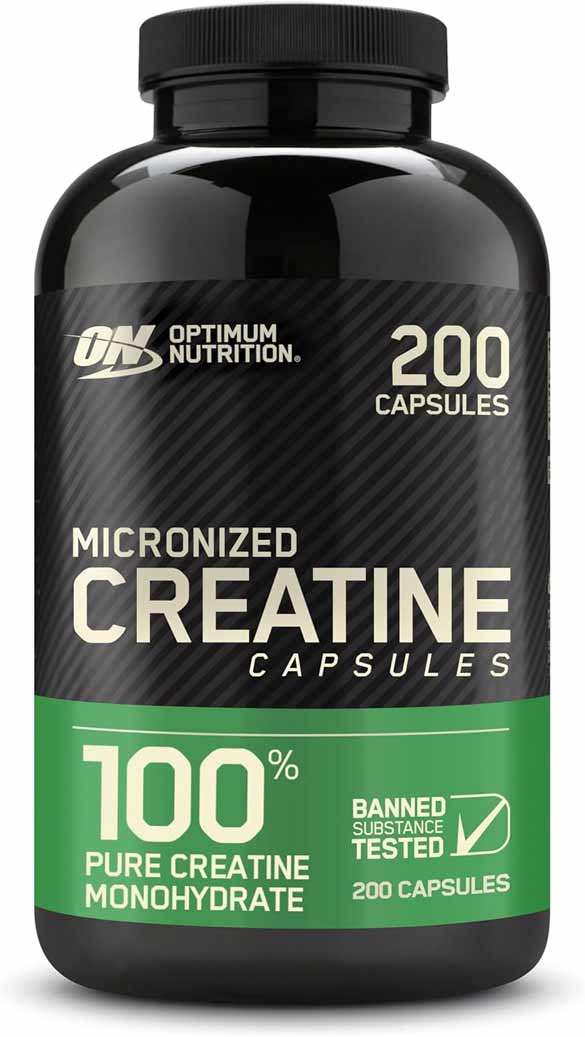
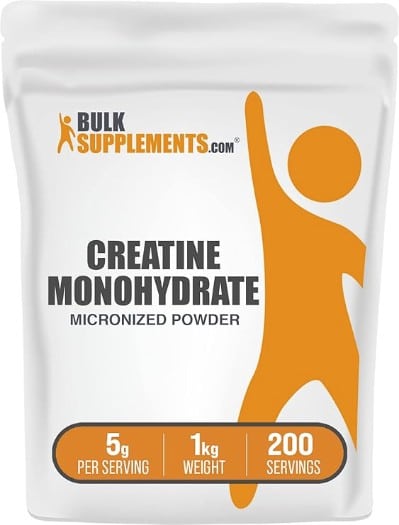
Creatine – ON
Creatine Monohydrate

Benefits:
- Supports muscle health
- Boosts strength and enhances performance
- Improves hydration
- Preserves cognitive function
There are multiple benefits of creatine, including for the brain, muscles, and bones. This is probably one of the most exciting supplements available right now, especially in the area of cognitive function. The recommended dose is 10 to 20 grams, as this seems to be the amount capable of crossing the blood-brain barrier. Every day, there seems to be a new study showing how creatine can minimize brain degeneration, improve cognition, and help maintain muscle mass. It’s very hard to consume enough creatine through a regular diet, hence the need for supplementation. Be aware that if you have a sensitive stomach, you may consider using the micronized version of creatine. There are far fewer studies on this version, but most scientists believe there isn’t much of a difference aside from cost.
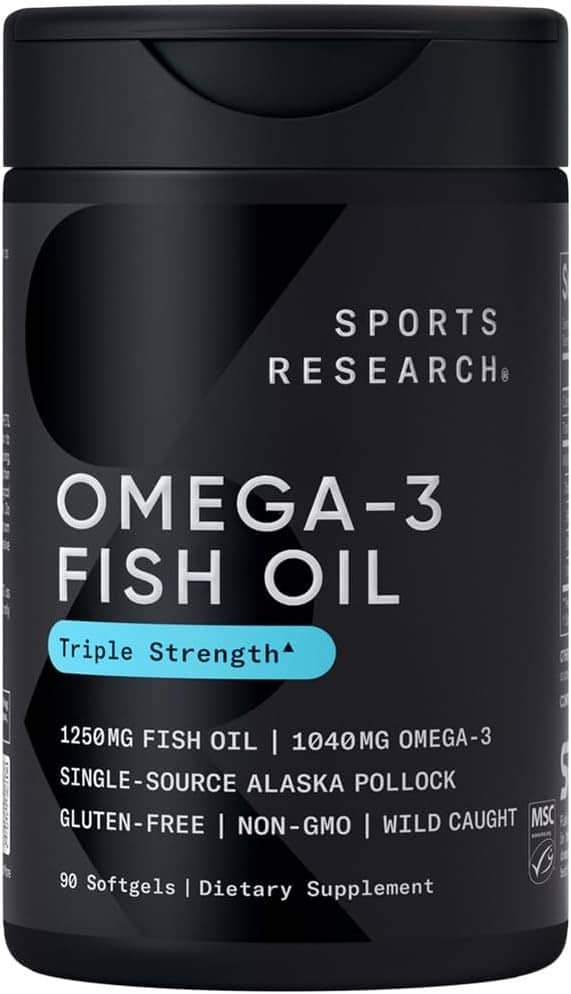
Omega 3 Fish Oil

Omega-3 fatty acids are essential polyunsaturated fats that play vital roles in normal metabolism and inflammation regulation. The two key omega-3s are eicosapentaenoic acid (EPA) and docosahexaenoic acid (DHA) – these cannot be made by the body, so we have to get them from foods like fatty fish or supplements.
Benefits:
- Improves cognitive function
- Improves cardiovascular health
- Improves blood flow and joint health
Omega-3 is one of the most research-backed supplements, with solid evidence for specific benefits. Its ability to lower triglycerides is well-established, so much so that prescription fish oil is an approved therapy for high triglycerides [heart.org]. There is also considerable clinical evidence for cardiovascular benefits such as risk reductions in heart attacks in large studies [pmc.ncbi.nlm.nih.gov] and supportive data for cognitive and anti-inflammatory benefits as described above. How much to take is really the question. Try to at least get 1.5 grams. A lot of the health podcasts recommend between 2 to 4 grams per day. I’m typically around 5 grams with the rationale being major reduction in cardiovascular risk, improvement in cognitive function, and reduction in inflammatory diseases. The major downside of taking high-dose fish oil seems to be the risk of bleeding, which I’ve had none of and I’ve been stuck with multiple needles for aesthetic purposes with no difference. Keep in mind my physiology may be different than yours. The other major risk is abnormal heart rhythms, especially atrial fibrillation, which have not changed significantly in my EKG. Note: this supplement must be stopped before surgery.

Whey Protein-Glutamine

Benefits:
- Muscle building
- Muscle repair
- Improves heart health
- Improves bone health
A supplement you may have heard of before is whey protein. This type of supplement is often associated with gym bros and bodybuilders, and for good reason. Whey protein aids in muscle building and muscle repair, making it a great option for active individuals and avid gym-goers. This is great to have around the time of surgery, and most people are probably not getting enough protein in their daily diet. Eating large amounts of red meat has shown to be potentially dangerous. To me, supplementation is a nice way of improving the mix and ratio of protein, fat, and carbohydrates. No one really knows which combination is the best, although there’s some data to support at least getting the minimum amount of protein. I like at least 1 gram per kilogram of body weight and around the time of surgery increasing it to 1.5 to 2 grams per kilogram to assist your body in healing.
Glutamine specifically targets injuries and gut health and I think is not necessary to take daily, but around the time of stressful events like surgery it can be helpful.

Ketones

Benefits:
- Improves focus
- Weight loss
- Helps maintain energy
- Boosts cellular energy
Ketones are a nice option for boosting energy, especially if you are intermittent fasting. Essentially by taking exogenous ketones, you can propel your brain to a ketotic state. It’s actually quite good for hyper focused moments and a good option if you need to skip lunch for whatever reason.
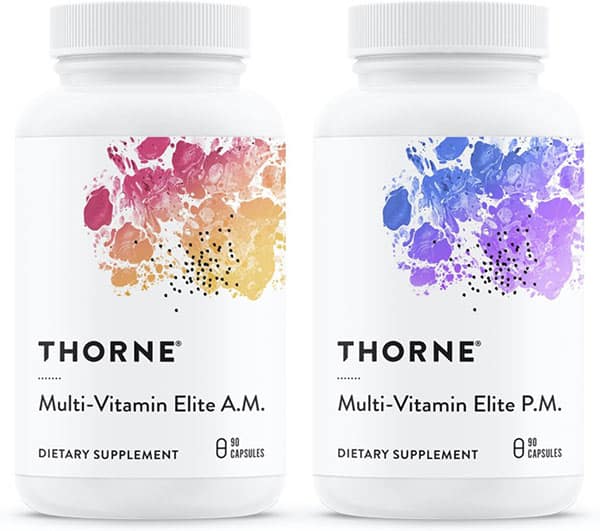
Multi-Vitamin Elite AM/PM
I replaced my previous muli-vitmain with this brand. This brand contains more vitamins and minerals so I was able to combine several supplement needs such as vitamin B and Zinc.

Benefits:
- Improves eye health
- Improves cardiovascular health
- Provides essential nutrients
Believe it or not, until recently most dietitians and doctors did not recommend taking a multivitamin. The thought was that a healthy, well balanced diet would allow you to get most of these vitamins and minerals. The cost of these are absurdly low for the potential profound benefit. A COSMOS study theorized that being deprived of micro nutrients forces your body to not repair certain vital areas. The results of this study reported that patients taking a multivitamin were shown to have improved cognitive function and less cognitive decline. Just be aware that certain vitamins like vitamin B can reach toxic levels if you take too much.
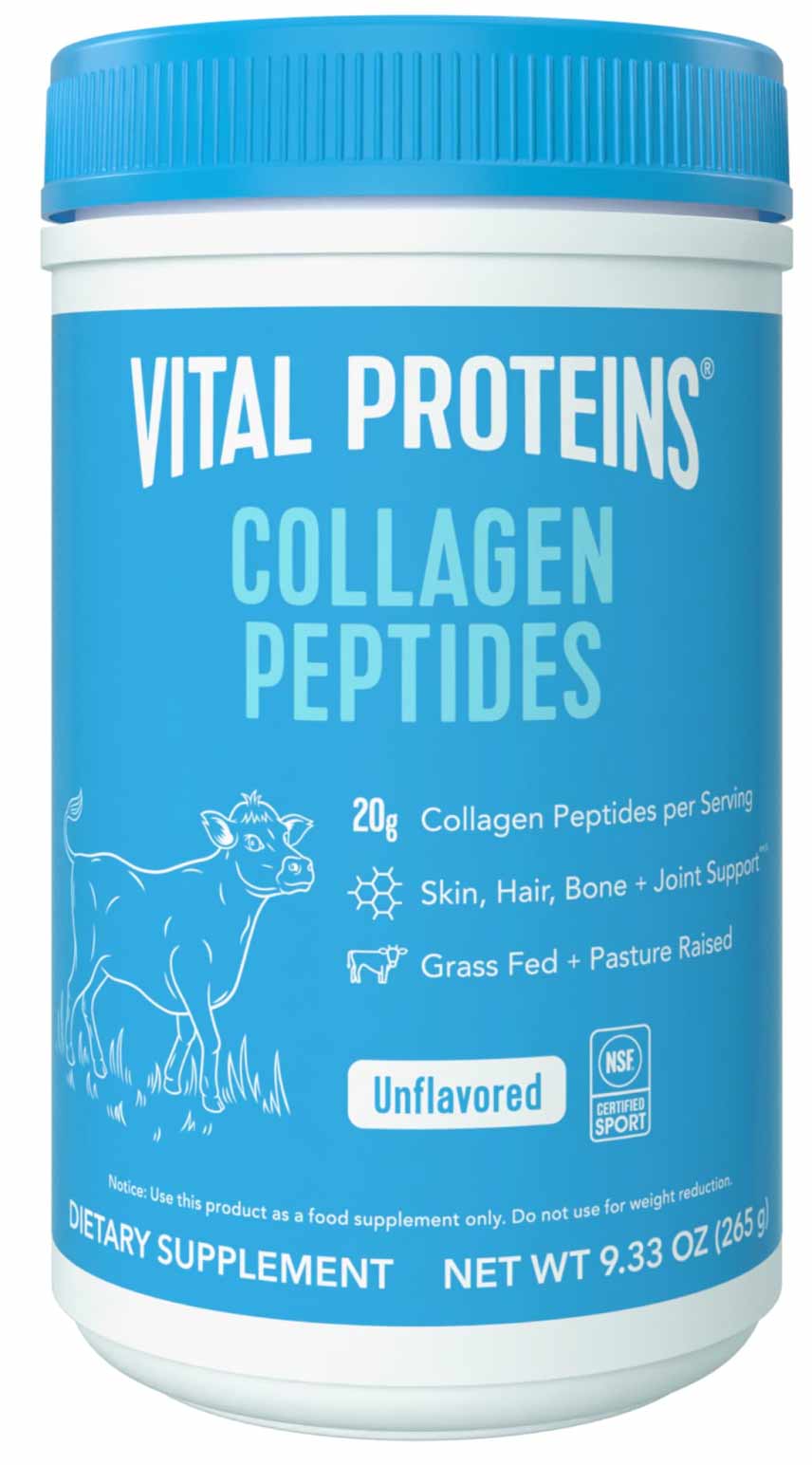
Collagen
Efficacy and Research Support 6/10

OK, this one may not help you at all, but it could. The theoretical benefit is that collagen will help your hair, skin and nails. A theoretical downside is that the collagen you ingest will be broken down by your stomach, and none of it will be absorbed. There’s plenty of anecdotal evidence on both sides that state that this may or may not be helpful. If you skip it, I wouldn’t be upset. If you take it, I wouldn’t expect a miracle either. I take it because I’m in the hair and skin business, and there’s almost no downside to taking it.
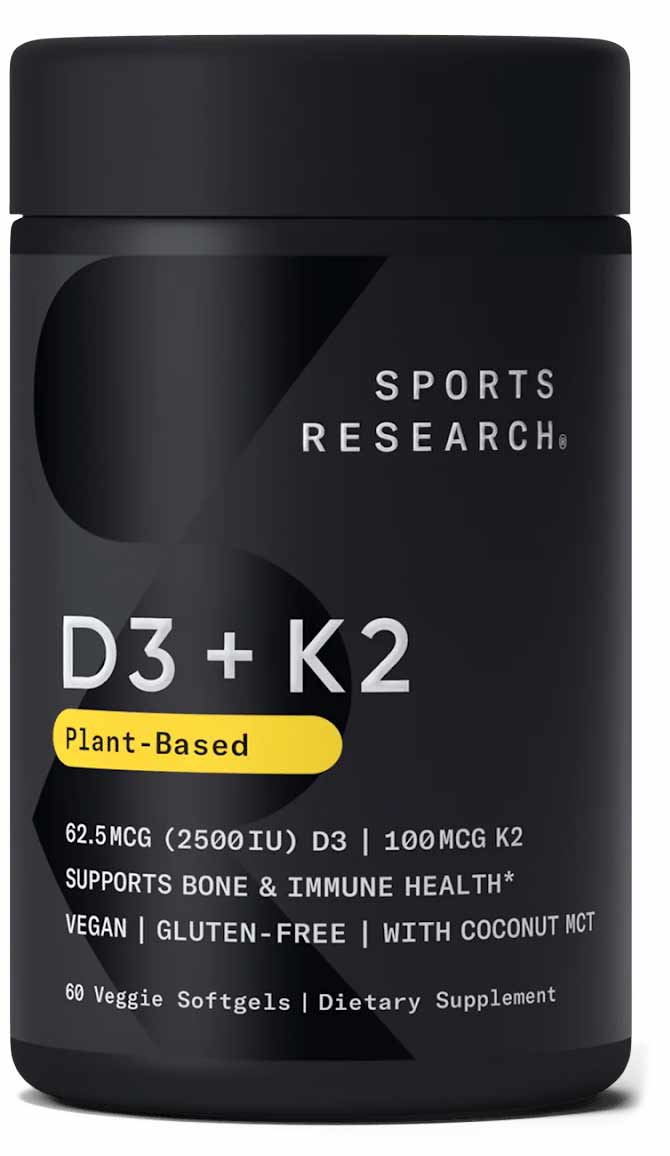
Vitamin D3/k2

Most multivitamins don’t contain enough of this complex, and it supports almost every vital function of the body. The best way to take this is to monitor your levels and ensure that you’re at the appropriate amount because you don’t want to take too much or take too little. Practically speaking, if you have more pigment in your skin, you probably need more of this and if you have fair skin and you have some sun exposure, you may need less.

Magnesium
I have changed to a different magnesium supplement. The previous one did not have magnesium glycinate, which has the most ideal absorption rate. Instead it contained magnesium oxide, which has a low absorption rate. different brand.

Benefits:
- Blood sugar recovery
- Increases energy levels
- Promotes better sleep
The Earth’s soils have been depleted, which has led to less magnesium in the vegetables we eat. Magnesium can help regulate your nervous system. Magnesium deficiencies are associated with a much higher cancer risk, brain degeneration, bone degeneration and cardiovascular dysfunction. There are a few variants of magnesium worth noting. Magnesium L –threonate crosses the blood brain barrier and allows for improved cognitive function, as well as improved sleep. Magnesium citrate helps G.I. function and bowel regularity. Magnesium chloride helps muscle function, including the most important muscle of all, the heart and cardiovascular system.
Anti-Stress or Cortisol Reducers
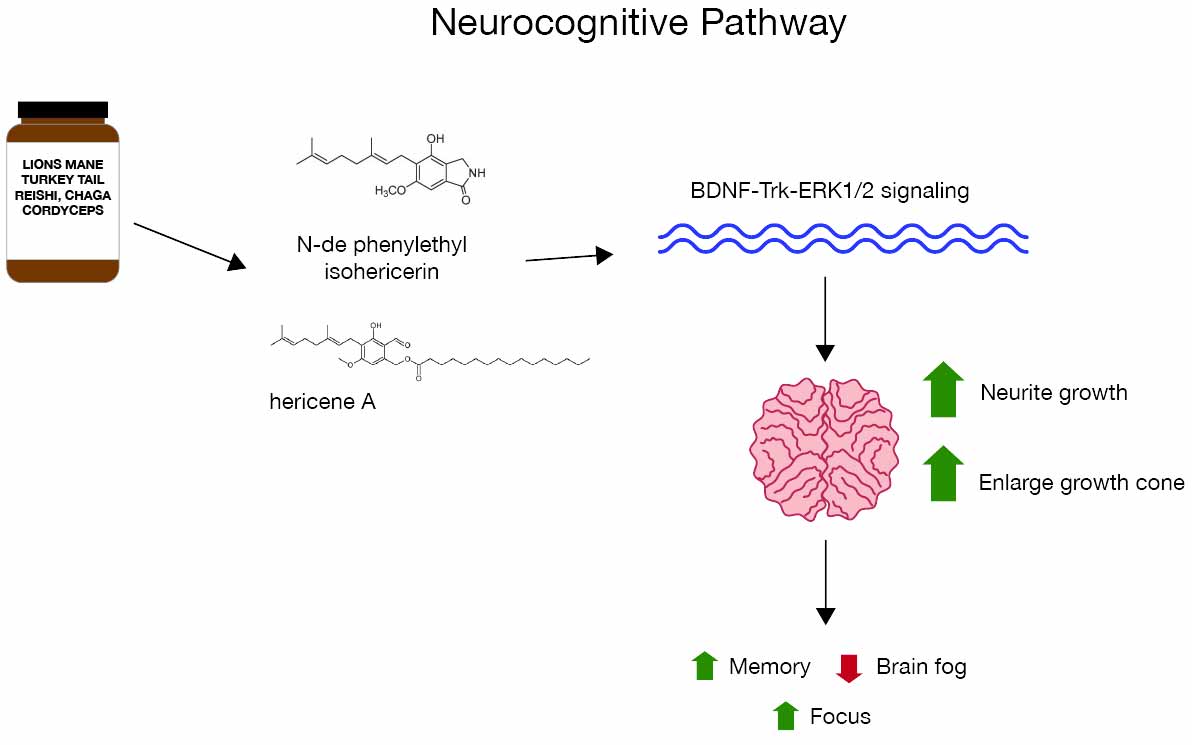

Theracurmin

Benefits:
- Enhances absorption of curcumin
- Boosts immune function
- Powerful antioxidant
- Reduces Cortisol
Theracurmin has much higher bioavailability than turmeric, doesn’t cause kidney stones, has much more powerful effects, and eliminates G.I. distress associated with turmeric. This is a great supplement for suppressing cortisol. Cortisol is a fact of life, and reducing its negative effects on your body can be helpful. You do not want to take this supplement around surgery as it can thin the blood.
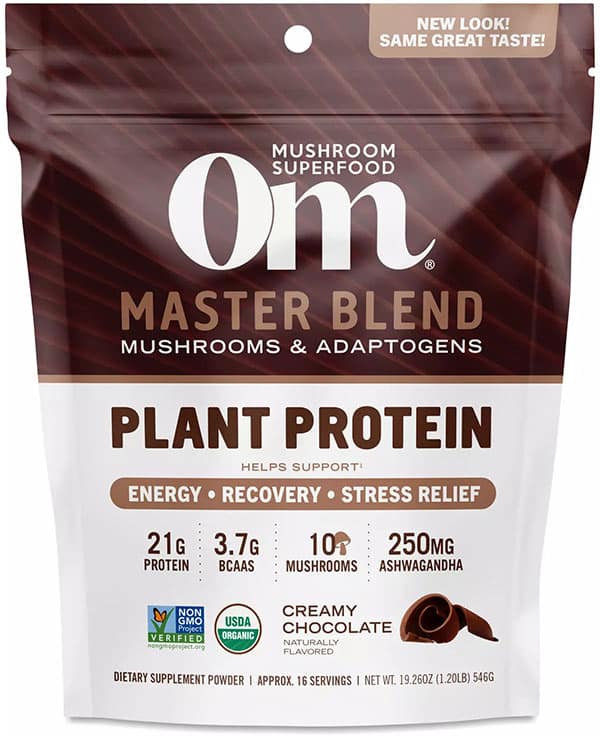
Lion’s Man

Benefits:
- Improves cognitive function
- Anti-anxiety effect
- Immune support
- Improves gastrointestinal health

Turkey Tail

Benefits:
- Contains anti-cancer properties
- Promotes gut health
- Controls blood sugar

Reishi

Benefits:
- Boosts immune system
- Contains anti-cancer properties
- Could reduce fatigue

Cordyceps

Benefits:
- Boosts immunity
- Improves blood sugar levels
- Boosts antioxidant activity
This fungus is used in traditional Chinese medicine to treat an array of ailments, including fatigue. Other benefits include an improved immune system and improved blood sugar levels.
The Arginine/L Citrulline Pathway
This is a completely different pathway than Viagra and Cialis work on. This is a pathway that has shown to improve muscle growth, hormone production, muscle strength before workouts, and even cognition. I put this in its own category because its mechanism of action is so different. Again, the downside of using this supplement is very low, and the upside can be potentially quite high. The data on growth hormone or production with these supplements is quite good. I don’t take exogenous growth hormones as I find it a higher risk profile than I like at this moment, I prefer to stimulate my body to make the effect when possible.
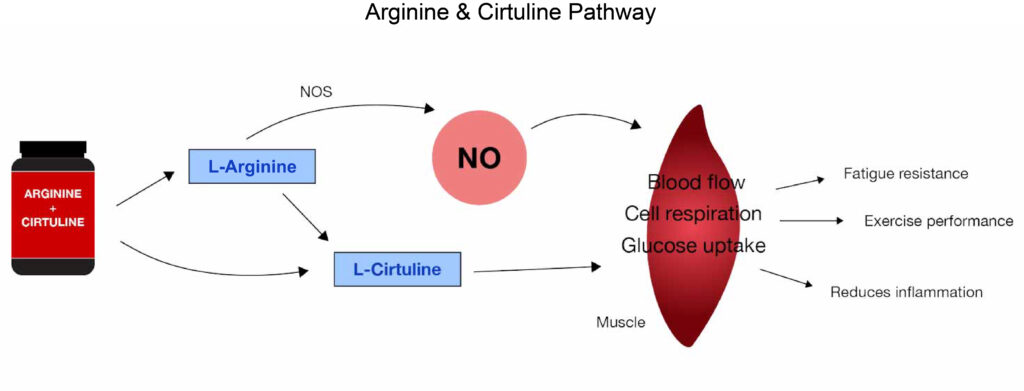

Beetroot
This is in a different form than previously. I was taking it as a multisupplent but now I am taking a more concentrated powder form in a daily smoothie.

Beetroot is a root vegetable known for its deep red-purple color and rich nutritional profile. It contains fiber, vitamins (like folate and C), minerals (potassium, iron), and especially high levels of inorganic nitrates. Once consumed, these nitrates convert into nitric oxide in the body, a molecule that helps relax and dilate blood vessels.
Benefits:
- Lowers blood pressure
- Improves blood flow and vessel function
- Boosts endurance and stamina
Beetroot has a strong foundation of research supporting its benefits for circulation and athletic performance. Dozens of human studies, including peer-reviewed clinical trials, have demonstrated its efficacy. For blood pressure, the evidence is particularly robust – analyses of multiple trials confirm modest but significant reductions in blood pressure with beetroot supplementation.[frontiersin.org] Similarly, for exercise performance, a comprehensive 2021 review of 73 studies found clear improvements in endurance metrics (longer exercise duration, improved output) with dietary nitrates from beetroot.[jissn.biomedcentral.com]
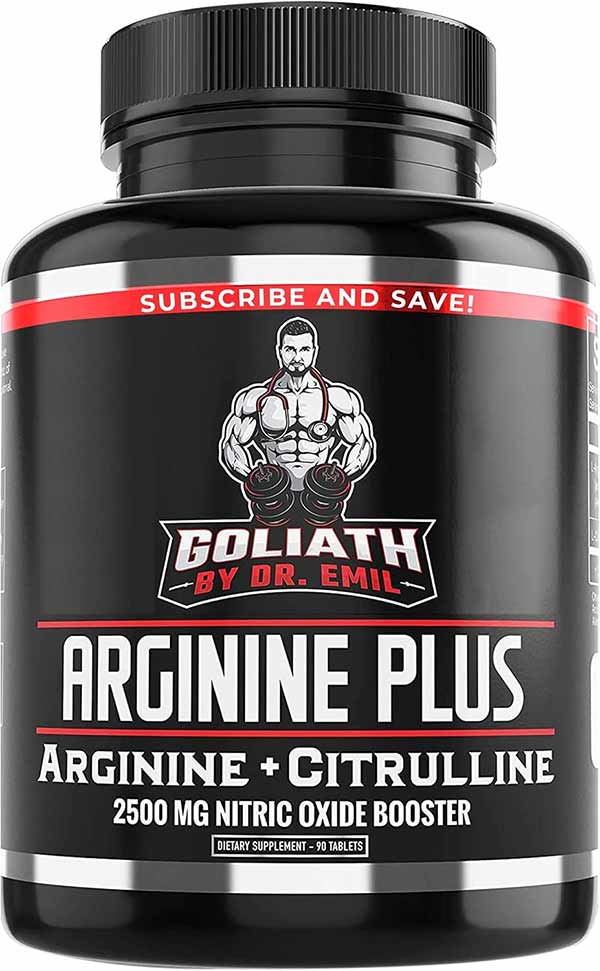
Arginine and Citrulline

Beetroot is a root vegetable known for its deep red-purple color and rich nutritional profile. It contains fiber, vitamins (like folate and C), minerals (potassium, iron), and especially high levels of inorganic nitrates. Once consumed, these nitrates convert into nitric oxide in the body, a molecule that helps relax and dilate blood vessels.
Benefits:
- Improves blood flow
- Enhances athletic performance
- Reduces inflammation
These powerhouse amino acids are known for improving cardiovascular health, as well as enhancing athletic performance.
Overall, L-arginine shows moderate health benefits with a fair amount of scientific support. Multiple human studies back its positive effects on blood vessel function and blood pressure – for instance, robust evidence shows it can modestly lower blood pressure in both healthy and hypertensive adults [pmc.ncbi.nlm.nih.gov, mayoclinic.org]. There is also evidence of improved exercise performance and circulation in specific groups [pubmed.ncbi.nlm.nih.gov].
The NAD category
I put this in a separate category because so many of my patients utilize this. NAD, or Nicotinamide Adenine Dinucleotide, is an essential coenzyme that helps your cells generate energy. We produce less NAD over time as we age, so adding an NAD supplement to your diet could be beneficial. Some critics warn that this supplement could potentially fuel cancer cells, however, other researchers state NAD may theoretically prevent cancers by preventing coding issues in our DNA.

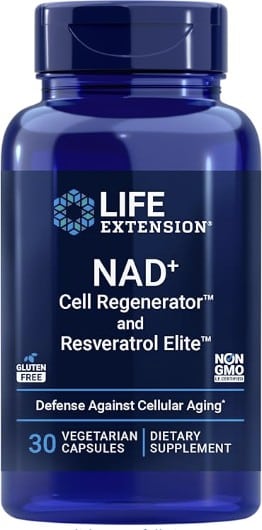
NAD+
This is a different brand than I was previously taking.

Benefits:
- Improves energy
- Enhances cellular repair
- Increases longevity
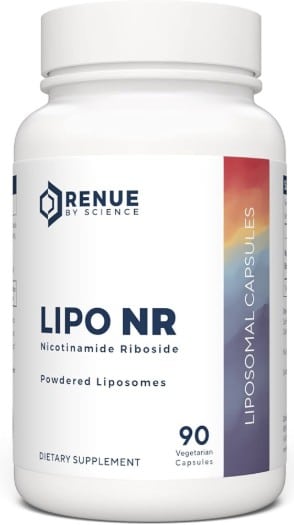
Nicotinamide Riboside
Different brand than last time

Benefits:
- Increases energy levels
- Improves mitochondrial function
- Reduces inflammation
Modern life has many advantages and disadvantages. Stress and increased cortisol production can hamper your longevity, sleep, muscle gains, and almost every other category. In a perfect world, meditation, stress release, and avoidance of stress would be the antidotes. However, I find that taking supplements can help give me the physiological improvement of cortisol levels that I need to perform at my best.
Hair growth
In terms of hair growth, I swear by this one supplement, or rather, medication. Most men are going to experience thinning hair and perhaps even lose their hair. Don’t worry, because taking proactive steps, such as finasteride, can help. *For younger patients who are still thinking of having kids, I’d recommend saw palmetto instead. If you are a little older and are done having children, consider taking a low dose of finasteride.*
Finasteride

Benefits:
- Reduces hair loss
- Stimulates hair growth
- Reduces your prostate
Technically a medication, finasteride is used to treat and prevent hair loss in men. This is probably the most powerful medication on earth that can help prevent hair loss. Your prostate is probably going to shrink as well, and patients seem to live longer as a result of taking this medication due to improved cardiovascular health. Before taking finasteride, however, it is important to acknowledge the potential risks. Some people who take this medication experience decreased libido, as well as issues with male performance (erectile issues). However, in all my years treating male patients and attending conferences, I have never come across an individual with a permanent case of male sexual dysfunction caused by finasteride.
If you’re sensitive to the effects of finasteride, consider taking a microdose daily. With finasteride, you get the added benefit of decreased prostate size, as well as perhaps increased longevity and cardiovascular performance. The downsides can be significant, however, so conduct research and weigh the risks prior to taking this medication.

